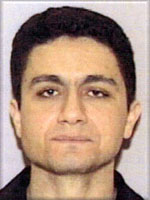9/11 Analysis: The Claim that ‘Able Danger’ Failed to Identify Mohamed Atta’s Probable Presence in the US in January 2000
Introduction
 Able Danger was the code name for a high-level intelligence
operation co-founded by Generals Hugh Shelton and Peter Schoomaker,
Commanders in Chief of the Defense Department’s Special Operations
Command (SOCOM).
Able Danger was the code name for a high-level intelligence
operation co-founded by Generals Hugh Shelton and Peter Schoomaker,
Commanders in Chief of the Defense Department’s Special Operations
Command (SOCOM).Telling the story about Able Danger takes time, but it is important, because its work strongly indicated that the man identified as “Mohamed Atta” had been in the United States in January-February 2000, about 18 months before the 9/11 attacks, whereas the official story said he arrived in June, 2000.
Furthermore, the official story claimed that US intelligence didn’t know he was in the country before 9/11, whereas an important part of US intelligence knew he had been there since Jan-Feb, 2000. (For the reason why we speak of “the man identified as ‘Mohamed Atta,’” see the footnote. [1])
However, the Able Danger evidence was consistently ignored by government officials; the 9/11 Commission failed to mention the evidence; and the Defense Department’s Inspector General covered it up. [2] Louis Freeh, the former director of the FBI, called the 9/11 Commission’s claim that it was not historically significant “astounding.”
Here are the details of this story:
Tasked with collecting open-source Internet data on worldwide al-Qaeda networks and terrorist financing, this massive “data- mining” operation employing 80 people began in late 1999.
It used a link-mapping strategy to download and analyze data from thousands of websites. The terrorist network data were then presented visually on wall charts.
The Able Danger leadership team included:
- Navy Captain Scott Phillpott (the head of Able Danger)
- US Army Lt. Col. Anthony E. Shaffer (on loan from the Defense Intelligence Agency)
- Erik Kleinsmith (Army Major and the Chief of Intelligence of the Land Information Warfare Activity)
- James D. Smith (a civilian defense contractor from Orion Scientific Systems)
- Dr. Eileen Preisser (Dual PhD, analytical lead, from the Land Information Warfare Activity)
Continue Reading at ..... http://www.globalresearch.ca/911-analysis-the-claim-that-able-danger-failed-to-identify-mohamed-attas-probable-presence-in-the-us-in-january-2000/5474994